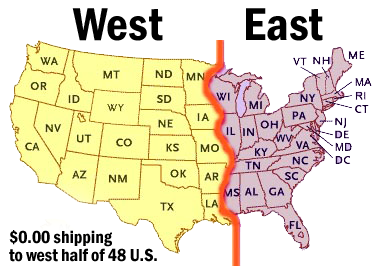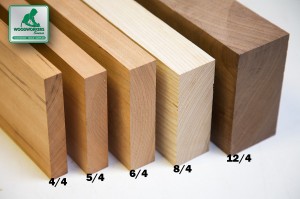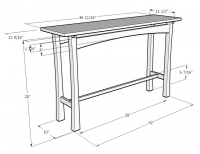
$59.00
$47.20
/pack
Sale Ends December 2, 2024
48 U.S. Ground Service
1/8" Baltic Birch Plywood Pack (Choose Your Size)
Get the best Baltic birch in the size you want!
Baltic Birch is the plywood of choice for a number of uses because it's inexpensive, stable, holds screws exceptionally well, and it's made with waterproof glue. Use Baltic Birch for your box bottoms, drawer sides, scroll saw art, shop jig-making and other craft work.
The length or width may be undersized by 1/8"
Grade & Size
| Grade | BB/BB, which is the second highest grade available. Both the face and the back veneers are single piece veneers with no splices. Both face and back veneers can have up to 6 small color-matched patches (egg sized footballs or another shape), some light mineral streaks or tight pin knots. Inner cores are solid single piece veneers. |
| Thickness | 3mm (≈1/8") |
| Width | 12", 15", 20" |
| Length | 60" or 30" |
| Quantity | 25 square feet, cut into your choice of sizes and piece count |
Actual thickness is 3 mm, and you choose your widths and lengths. (Sizes may vary by 1/8" due to the kerf of the saw blade)
Woodworkers Also Recommend These
The Best Baltic Birch
- Core of solid Birch veneer laminations means better gluing and screw-holding than other plywood
- Edges can be routed
- Edges can be left bare or covered with edge banding or solid banding
- Thick face veneer allows you greater margin for sanding without worry of sanding through
- Available in 1/8", 1/4", 3/8", 1/2" and 3/4" thickness

The Joys of Building with Great Woods
Understanding hardwood lumber starts right here with these wacky fractions.
If you're expecting perfect clear lumber 100% of the time, you're in for a surprise. Here's a summary of the hardwood lumber grades and what to expect from them.
Board feet isn't your everyday kind of math, but these three simple steps make it easy to figure out your project.
Here's a handy (and free) Excel worksheet that helps you estimate the lumber needs for your project.
Are woods poisonous? Hazardous to use in cutting boards or baby cribs? Find out here.
Wood is like a sponge, and it's always in a state of absorbing or releasing moisture to stay equalized with its environment. The problem with that is it also swells and shrinks. Here's what you need to know to protect your project.





















